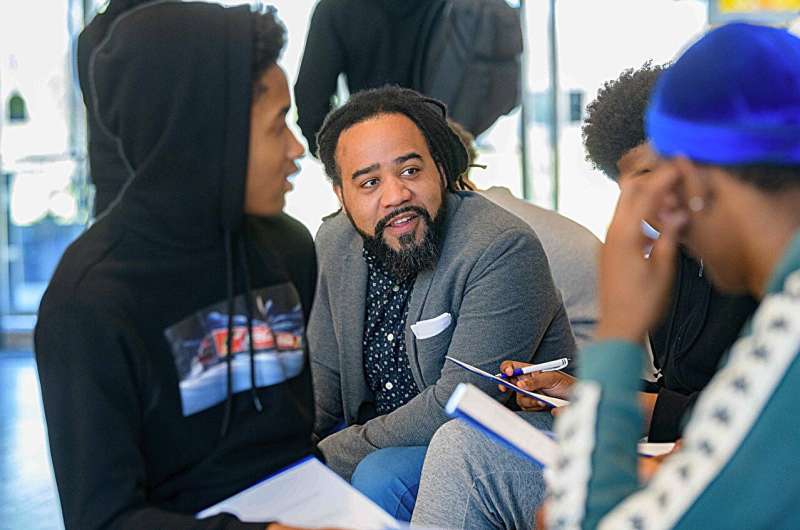This article has been reviewed according to Science X's editorial process and policies. Editors have highlighted the following attributes while ensuring the content's credibility:
fact-checked
trusted source
proofread
Researcher finds high schools fail to understand, support aspirations of Black and Latinx boys

Researcher Roderick L. Carey offers an in-depth case study of three Black and two Latinx boys in 11th grade at a linguistically and ethnically diverse urban school, which he calls Metropolitan Collegiate Public Charter School (Metro). Over the course of an academic year, Carey interviewed the students about their school's college-going culture and how it influenced their conceptions of their postsecondary future selves.
Metro employed what Carey calls a "college-over-everything-else" culture. College posters adorned the school walls year-round, students regularly attended college and recruitment fairs, teachers wore the insignia of their alma maters every week, and students were required to apply to colleges.
Carey found that Metro prioritized the "what" and "how" of college access—answering "What is a college degree?" and "How do I secure one?"—but paid little attention to the "why" or how college would help a student fulfill his future ambitions. Answering the "why" question was especially important for this group of Black and Latinx boys; many of them would be the first in their families to attend and graduate from college.
Carey's study also found that, while some students had clear career ambitions, their ability to align college majors with these careers varied. And, despite the school's college-going culture, some students did not have a clear plan for a future career.
Finally, Carey found that the participants in his study struggled to envision their lives after the age of 23, around the time when they graduated from college. The study participants generally envisioned a modest life characterized by minimal stress, financial stability, and personal satisfaction. But, students like Perdido were not able to offer many specifics.
For Perdido, a "good life" was a "steady life," free from financial worries. Plans for civic engagement, hobbies, volunteerism and even joyous pursuits were all absent from Perdido's vision of his future life.
The study is published in the American Educational Research Journal.
More information: Roderick L. Carey, The Postsecondary Future Selves of Black and Latinx Boys: A Case for Cultivating More Expansive Supports in College-Going Schools, American Educational Research Journal (2023). DOI: 10.3102/00028312231214477
Provided by University of Delaware





















